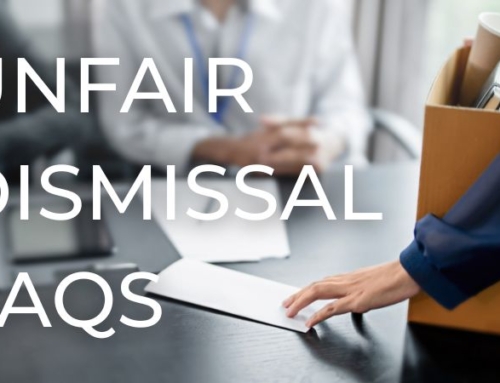As the financial year ends, many employers will be assessing their budgets for the upcoming year and are currently facing the challenge of increasing overheads. As a result, we are seeing employers tightening their belts and making redundancies. If staffing cuts are necessary, affected employees are often presented with a Settlement Agreement.
In this article, we explain what a Settlement Agreement is and what you need to know if your employer asks you to sign one.
What is a Settlement Agreement?
A Settlement Agreement is a legally binding contract that outlines the terms agreed upon between you and your employer at the termination of your employment. It benefits both parties by providing financial clarity and lets you know where you stand legally.
A Settlement Agreement can be used whether the termination of employment is amicable (for example, voluntary redundancy), or not (for example a dismissal), as long as both parties agree to the terms. It will set out details of all the payments that your employer will pay you and when they are to be paid, such as;
- Final salary payment
- Holiday pay
- Notice pay
- Compensation for loss of employment. i.e redundancy pay and ex gratia payments.
In many cases, it will also outline agreed wording for future job references too. In return, you waive your right to bring legal claims against your employer, such as claims for unfair dismissal.
Seek Legal Advice
We understand that being presented with a Settlement Agreement by your employer can be a stressful experience, especially when it’s completely unexpected. However, you will need to decide within a specific timeframe whether you should accept what has been offered or not.
Fortunately, Settlement Agreements are not legally binding unless you have taken independent legal advice from a solicitor or an appropriately qualified person. A solicitor will explain the agreement in full, so you know what rights you are signing away in return for the financial payments. The solicitor must also sign the agreement to confirm that they have given you this advice.
Understanding the Compensation Payments you are entitled to
The amount you should be offered in a Settlement Agreement depends on various factors.
- Length of service – To qualify for redundancy pay you will need to have a minimum of 2 years’ service.
- Notice period – This will determine the notice pay you should receive.
- Potential Employment Tribunal claims – If you have an outstanding grievance or employment issue such as discrimination, the potential value of your claim should be considered.
- Finding alternative employment – Settlement Agreements aim to give you a financial cushion until you find another job. Consider realistic timelines when evaluating your offer.
A good solicitor will assess these factors and run through these with you to ensure you will receive fair compensation.
How to Choose the Right Solicitor
When you are choosing a solicitor to advise you on your Settlement Agreement it is very important to choose an employment law specialist. There are several reasons for this:
- You may have a genuine Employment Tribunal claim and this should be identified and explained to you so that you can decide whether to sign the Settlement Agreement. Remember – once you have signed, you lose the right to bring a claim.
- You may be entitled to more than your employer is offering – an employment law specialist will be able to spot this and negotiate with your employer on your behalf to get you the best deal.
- The Settlement Agreement may not be tax efficient – for example termination payments up to £30,000 are normally tax free, but payments in lieu of notice are not. An employment law specialist will advise on the best way for payments to be made.
- Your employer will usually offer a fixed amount towards your legal costs as part of the Settlement Agreement. If you are happy with the agreement and there is no negotiation needed this will probably cover all of your legal costs. If negotiation is needed, an experienced solicitor can often convince the employer to increase their contribution.
- Your employer may have had what is called a “protected conversation” with you before offering you the Settlement Agreement. It’s possible that you may not be able to use discussions during this conversation for future bargaining purposes or in an Employment Tribunal claim. This is a complex area and requires specialist advice.
How can Backhouse Solicitors help?
If your employer has asked you to sign a Settlement Agreement, our expert employment law solicitors are here to help. Our friendly team will provide clear advice to help you understand the terms set out in the agreement, so you know exactly what they mean. If you aren’t being offered what you should be then they will negotiate on your behalf to get you the best deal from your employer.
Contact Backhouse Solicitors today to book a free 30-minute appointment.
Tel: 01245 893400
Email: info@backhouse-solicitors.co.uk
Visit: 17 Duke Street, Chelmsford, CM1 1JU
Or send us a message through the Contact Us page on this website.






